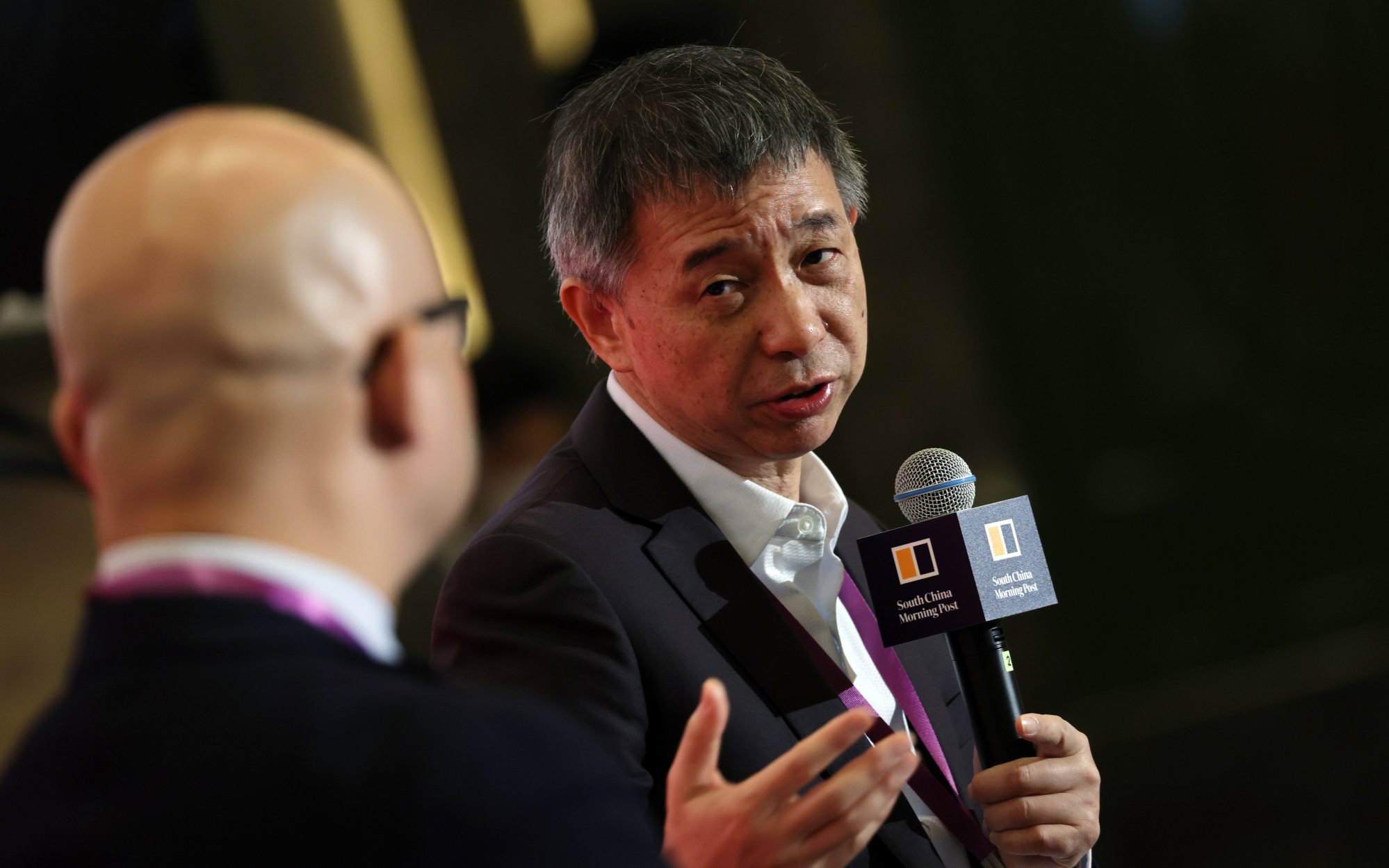
Alibaba Cloud founder Wang Jian tells Hong Kong to aim for the skies in moonshot project with China’s space telescope, aspire to be world’s first digitalised city
- Tech mogul suggests concept of ‘city brains’ – using technology to sustainably power a metropolis and digitalise it
- He says a ‘sky cloud’ project tied to China’s space mission could spawn other new technologies
Hong Kong is well positioned to become a global astronomy research hub using its work with China’s first space-based telescope to attract talent and develop new technologies, according to Alibaba Cloud founder Wang Jian.
The financial hub, with a population of more than 7 million, could also become the world’s first digitalised city by leaning on technology for sustainable resource consumption, Wang told the South China Morning Post’s China Conference: Hong Kong 2023 on Tuesday.
Wang has earned recognition for his role in building the cloud business from scratch for e-commerce giant Alibaba, which owns the Post. He said at Tuesday’s event that Hong Kong could attract the best talent with a moonshot project.
With the Chinese Survey Space Telescope, also known as Xuntian, expected to be launched later this year and placed into orbit with the China Space Station in 2024, Wang said he believed Hong Kong could host a “sky cloud” hub for global researchers to make astronomical discoveries.
The nation’s first space-based optical observatory, with a 2.5 billion-pixel camera that has a field of view 300 times greater than the Hubble Space Telescope, will allow astronomers to map up to 40 per cent of the skies over 10 years.

“Processing the images we get from the universe seems useless, but as a technologist I think having a project like this can generate a lot of technology that has great potential for the economy, for the social environment and even for talent,” Wang said.
“If you have such a sky cloud project, you actually could attract the best talent from [around the] world.”
He drew parallels with the US space programme in the 1960s, noting that although there were few economic benefits to putting humans on the moon, the process of achieving the goal had given rise to new technologies that touched everyday life.
“The sky cloud is just a suggestion, the key is that Hong Kong needs its own science and technology moonshot project,” Wang argued.
The China Manned Space Agency in October for the first time accepted applications from Hong Kong and Macau for payload specialists under its manned space programme. Around a dozen scientists from the city have reached the final selection process.
Hong Kong Chief Executive John Lee Ka-chiu earlier said the recruitment exercise “demonstrated the country’s confidence in Hong Kong’s level of scientific research and development as well as her care for the development of Hong Kong’s young people”.
Institutions in Hong Kong, in particular Polytechnic University, have taken part in space exploration projects nationally and overseas, though astronomy has not gained traction with local students.
In 2018, the University of Hong Kong dropped the subject for undergraduate studies 10 years after its introduction, citing poor admission rates. The university still maintains a dedicated Laboratory for Space Research.
Wang also shared his vision of building “city brains” that would make use of technology for resource conservation.
“When we talk about ‘smart cities’, a city is a place where we put all the new technologies inside, but we never have a very clear answer on how we can reduce resource consumption for everything,” he said.
His vision of “city brains” would focus on goals such as minimising leakage through the water supply using detection technologies.
Given Hong Kong’s scarcity of resources and high density, Wang said he believed the financial hub would be keen to adopt technology to sustainably power it, thus becoming the first digitalised city in the world.
Tightened US export controls introduced last October have restricted China’s ability to manufacture advanced chips or buy them from abroad.
Asked about the restrictions, Wang said the performance of cloud computing was not fully dependent on the availability of the most advanced chips.
“It depends on your application, it depends on the architecture. So I will say that 20 per cent or 30 per cent of the difference between two chips doesn’t matter for cloud computing,” Wang said.
“So cloud computing really gives more space to leverage, and [does] not depend on a single chip.”
He also reaffirmed his faith in the future of cloud computing.
“Think about the PC era, Bill Gates had a dream to make sure every home had a PC. It’s almost true in most parts of the world, but it’s still not true in Africa. But I was saying that with cloud computing, the dream is going to come true. Everyone on the planet is going to have access to cloud computing,” Wang said.
“If your start-up is a small company, you can do all the innovation [ChatGPT developer] OpenAI can do … It’s a good time for small companies to do innovation.”
Wang, as a member of the Chinese Academy of Engineering, joined the Chinese People’s Political Consultative Conference, the country’s top political advisory body, earlier this year.


